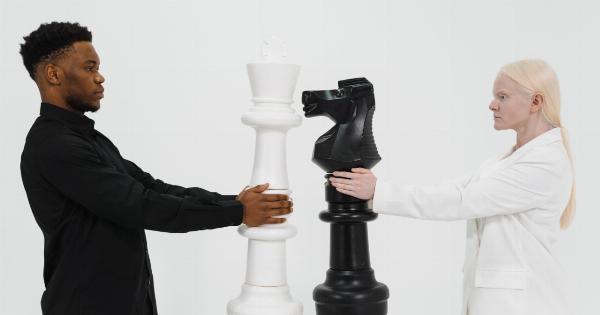Throughout history and across cultures, numerous misconceptions and myths have persisted regarding a man’s supposed ability to “sense” if a woman is a virgin.
These beliefs are deeply rooted in cultural traditions, societal expectations, and misplaced notions of sexuality. In this article, we will explore the topic and shed light on the scientific realities behind these claims.
The Biological Factors
When it comes to determining a person’s sexual history, biology provides no concrete markers that can be easily discerned by others.
The presence or absence of a hymen, a small membrane near the entrance of the vagina, is often associated with virginity. However, many factors can influence the appearance of a hymen, including physical activities, medical conditions, and tampon use.
Therefore, relying solely on the presence or absence of a hymen to ascertain a woman’s virginity is highly unreliable and can perpetuate harmful stereotypes.
Cultural Beliefs and Societal Expectations
Across different societies, the concept of virginity holds varying levels of importance. In some cultures, virginity is highly valued and seen as a symbol of purity, virtue, and marital suitability.
These cultural norms often place a significant burden on women to preserve their virginity until marriage. In such societies, the myth that a man can intuitively sense a woman’s virginity becomes a mechanism to enforce social control and exert dominance over women’s bodies.
However, it is important to recognize that these beliefs are social constructs, and virginity itself is a subjective and fluid concept.
The emphasis placed on virginity is often rooted in sexism and misogyny, positioning women as objects to be controlled and owned.
The Role of Education and Awareness
In order to debunk these myths surrounding virginity, it is crucial to prioritize comprehensive sexual education and promote awareness.
Education can empower individuals to understand the complexities of human sexuality, debunking misconceptions and promoting a healthier, more inclusive understanding of virginity.
By encouraging open and honest conversations about sex, we can dismantle harmful beliefs and challenge the notion that a woman’s worth is determined by her sexual history.
It is important to foster an environment where individuals are free to make informed choices about their bodies, and where their rights, autonomy, and agency are respected.
The Need for Consent and Respect
Regardless of a person’s sexual history, it is essential to remember that consent and respect are paramount in any sexual encounter.
A person’s virginity status does not diminish or enhance their worth, and it should never be used as a measure of someone’s value or character.
It is crucial to engage in open and honest communication with sexual partners, seeking mutual consent and ensuring that both parties are comfortable and enthusiastic about their sexual interactions.
This understanding helps foster healthier relationships based on trust, respect, and equality.
Dismantling the Myths
The belief that a man can instinctively sense a woman’s virginity is a persistent and damaging myth that perpetuates harmful gender norms and judgments.
By challenging these misconceptions, promoting comprehensive sex education, and fostering respectful attitudes towards all individuals, we can create a more inclusive and equitable society free from harmful stereotypes.
Conclusion
The notion that a man can sense a woman’s virginity is nothing more than a deeply ingrained myth rooted in cultural beliefs and societal expectations.
Biology does not provide any foolproof method for determining a person’s sexual history, and promoting such beliefs can be harmful and perpetuate harmful gender stereotypes. Let us strive for a society that prioritizes education, consent, and respect, free from the shackles of archaic ideas surrounding virginity.































